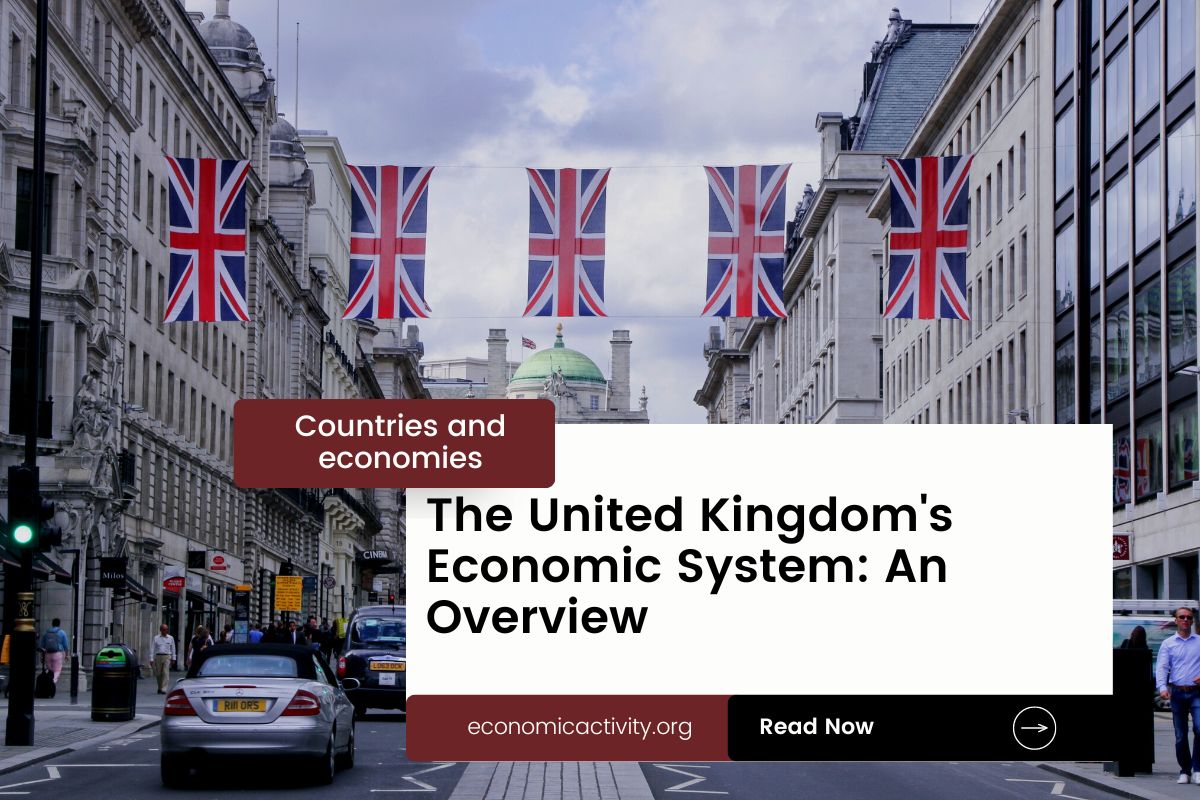What is the economic system of the United Kingdom? The economy of the United Kingdom is based on a mixed economy. The country’s economic system combines elements of a market economy and a planned economy.
The UK has a highly developed, diversified economy. It’s one of the world’s largest financial centers and home to multinational corporations. Key sectors include finance, manufacturing, particularly aerospace and automotive, and services, especially healthcare and education.
In the United Kingdom, the economy is composed of a private sector, consisting of individuals and businesses that make autonomous decisions based on self-interest, and a public sector, where the state determines the production and distribution of certain goods and services. No country is purely capitalist or purely communist.
What do the freedom indexes tell about the economic system of the United Kingdom?
Now, to determine if a country is mostly a market economy or a planned economy, it is useful to examine some economic indexes. For instance, according to the 2022 Index of Economic Freedom, which measures the ability of every human to control his own labor and property, the United Kingdom is ranked 24th globally and 17th in Europe indicating that the country has a mostly free economy.
In a similar way, the 2022 Freedom House index evaluates the state of political rights and civil liberties globally. Generally, market economies tend to align more with democracy and freedom, while command economies tend to be characterized by greater state control and fewer democratic and civil liberty protections. The United Kingdom gets a score of 93/100, which qualifies it as Free.
The United Kingdom is a country where the government does not control what people do for political reasons, and people have the freedom to choose (what, how much, and how to produce, whether to buy or not, selling price, etc.)
The Link Between Public Sector Employment and the Economic System of United Kingdom
An indicator of the extent to which the State is involved in the economy is the number of public sector employees. In the United Kingdom, according to ILOSTAT, the number of public sector employees as a percentage of the total workforce is 22.5% (2020).
In the country’s mixed economy, the number of public sector employees as a percentage of the total workforce varies based on the specific policies and practices adopted by the State.
Some economic activities are left to the private sector while others are under government control. The bigger the public sector the closer is the economy to being a command economy.
What do the biggest companies in the United Kingdom say about the country’s economic system?
The biggest company in the United Kingdom should also be looked at, as well as whether it is a state-owned or private company. In this case, is a global banking and financial services company with operations in 64 countries.
HSBC Holdings is a publicly traded company, and its shares are owned by numerous institutional and individual investors around the world. As of September 2022, the three largest institutional shareholders of HSBC were Dimensional Fund Advisors (holding 0.25% of outstanding shares), Jane Street Group (holding 0.14% of outstanding shares), and Morgan Stanley (holding 0.13% of outstanding shares).
It shows how the biggest companies in the country are privately owned.
More: Top 10 Biggest companies by revenue in UK
The historical factors that have influenced the economic system of the United Kingdom
The UK has had a mixed economy since the late 19th century, with a combination of private enterprise and public ownership. This system has been driven by a combination of factors, including the need to maintain a competitive market, the need to provide public services, and the need to ensure economic stability.





Leave a Reply